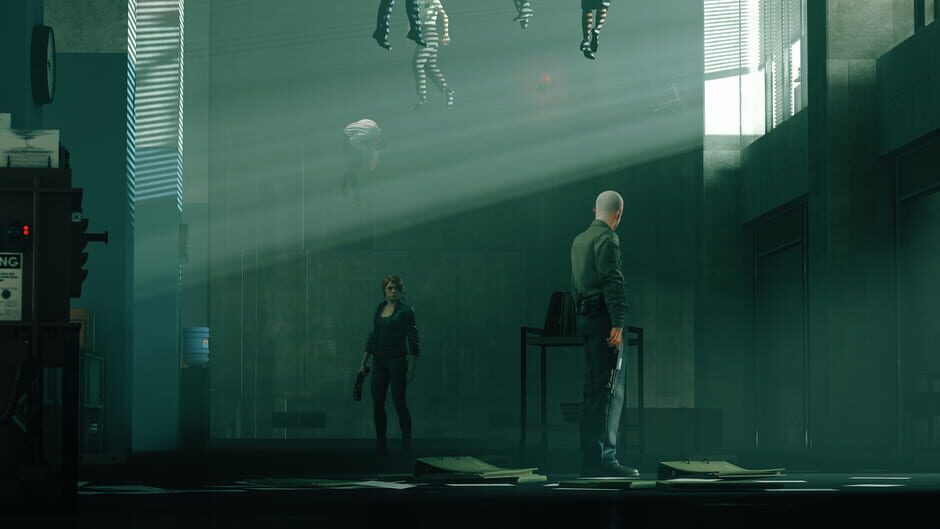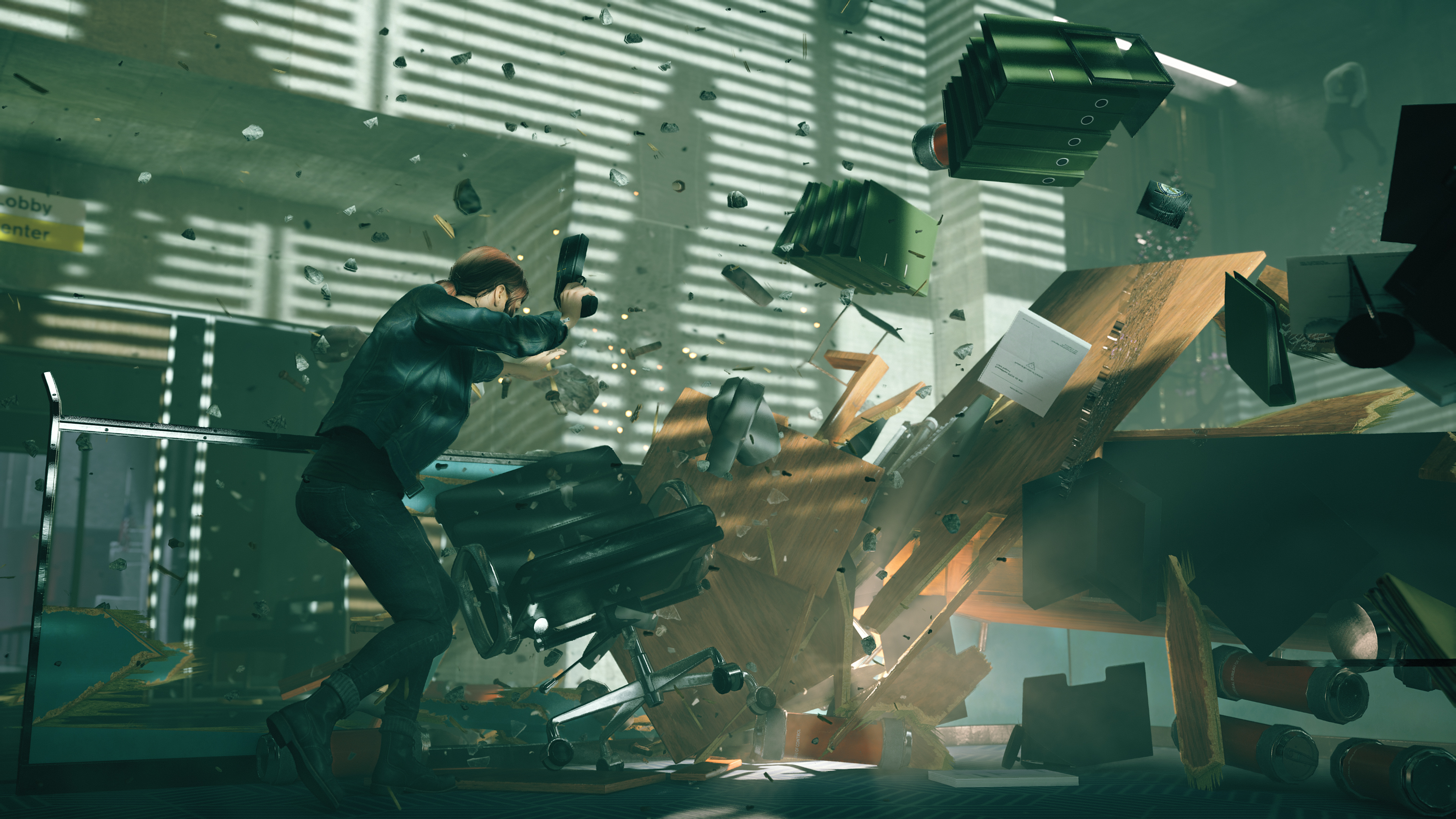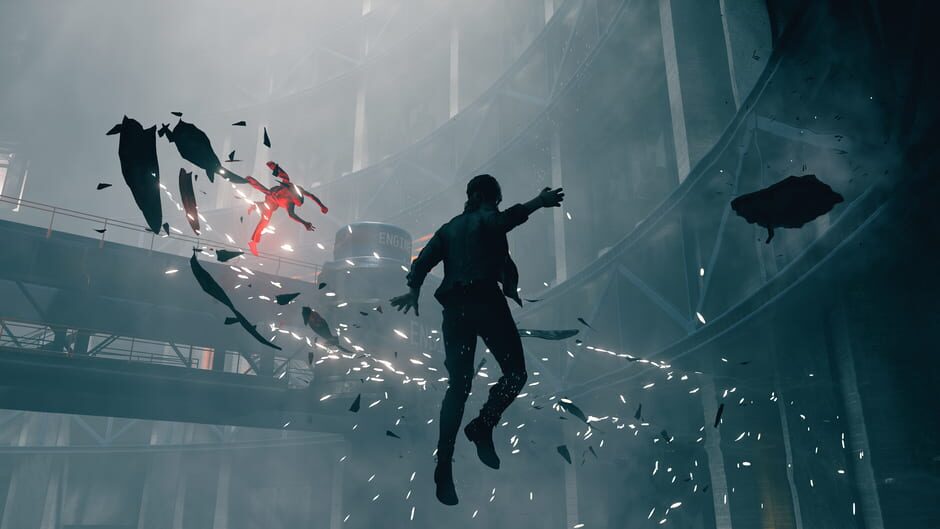I'm a huge fan of action-adventure games, being shamelessly fond of third-person perspectives and a strong storyline. So, when I was recommended Control, I couldn't wait to get my teeth stuck into a new world - it had everything I could possibly want in a game, especially when it came to the consistently high ratings from the usual publications, IGN, Gamesradar and so on. Even better, it was recently on offer on the PSN store, something we could all do with during isolation - so I decided to delve into Jesse Faden's world for the first time.
It begins with a rather depressing monologue that sets us up for the neo-noir theme throughout the game, and quickly leads to you becoming the Janitor's assistant and the new director of the Federal Bureau of Control. Aptly named, considering everything in this company appears to be very specific and very rigid in this game - from the brutalism of the building's architecture to the inflexible personalities. Even the interactions between the main character and the NPC's is dry at best, with the warmest character arguably being Emily Pope, whose fast-talking rhetoric can quickly give you a headache if you don't keep up.
The house, of course, moves seemingly of its own volition, twisting and turning through different dimensions as you explore. And the novelty of this can wear off quickly, if you don't make use of the in-game map that takes up the entire screen, when highlighted. Be warned that this is not a feature you should use when entering a new room, as your extra-dimensional friends - called the Hiss - will spawn at the same time.
The frustration of constantly fighting the Hiss is highlighted by the inability to create regular checkpoints, due to the open nature of the game - and would be fine, if it weren't for the fact that you constantly need to defeat foes that you have already conquered, each time you die - with only bosses appearing to be exempt from this. In other words, if you die while trying to figure out a boss' weak points, for example, you'll need to go from the last checkpoint, back through the building and return to the fight - listening to the in-game chatter and fighting the respawning baddies, each and every time.
Each and every, frigging, time.

Again, without waypoints to help you decide on which direction to go, when seeking out the story, you may find yourself doing this a lot. Too much, in this humble writer's opinion. While I can see how this might add to the overall mood of the game (a lack of control - an irony I'm sure was high-fived upon, in the office) it detracts from the gameplay.
And herein lies the problem - Control stops being fun after the first few missions. It becomes tedious and many players appear to be losing interest in the story around halfway through the gameplay. This is a shame, really, as things do become much more lively and interesting toward the end of the game again - in particular, a fun bounce around the Ashtray Maze can be a memorable gaming experience - but it shouldn't feel like a slog to get to this point.
You spend an awfully long time trying to figure out what happened to Jesse Faden's brother, Dylan - but, when you eventually come across him as part of the main story, the experience is anti-climactic. Worse still, what you expect to be a big, final boss is actually just an old friend passing you a small trinket to push the game forward. There's a frustration in each and every plot point that makes you roll your eyes and mumble "get to the point, Jesse" more times than I care to recall.

It's a shame, really, as the actual controls of Control are pretty good - being able to use telekinetic powers always correlate to a good time, in terms of gameplay. Picking up the new powers of levitation and mind control as the game progresses also help to clear away the waves of enemies, as you become more experienced. But, what initially starts out to be some creepy Hiss baddies, eventually gives way to simply running past them in order to progress with the story, due to said frustration - so you don't end up utilising these as much as you might want.
The skill tree, as you might expect, is pretty standard - although getting additional skill points is directly linked to upgrading other parts of the game. You can even improve your gun with points collected by defeating Hiss agents and random pick-ups from your fallen foes, which leads to some interesting personalisation of your weapon. It's definitely recommended that you do this regularly, in line with your own gaming style, as the powers Jesse gains throughout Control are limited by her energy - a nice added feature that ensures you aren't simply throwing everything around until you're surrounded by dead agents of the Hiss.
As a result of all of these points, however, Control simply isn't as fun to play as I expected. There are definitely a lot of good points to this game, but the overall feel of the story is more tedious - and even irritating at parts - than it is enjoyable. Exciting moments might give you a second or two of "ah, that's cool" but, beyond this, I never felt like there was a need to keep pushing forward - a feeling enhanced by the underwhelming ending.

My advice, when going into this experience, would be to do so with an open mind and no prior knowledge of the game itself. The hype and positive reviews may lead you to the same experience as I, so I wholeheartedly recommend taking this with a pinch of salt. Enjoy yourself and take your time when exploring, to ensure you don't miss any extras (as I did, before having to backtrack in order to progress). If you're looking for story and a linear narrative over the gameplay, then this probably isn't the right genre for you - but if you like killing baddies and getting in-game points, then you may well enjoy Control for all it has to offer you.